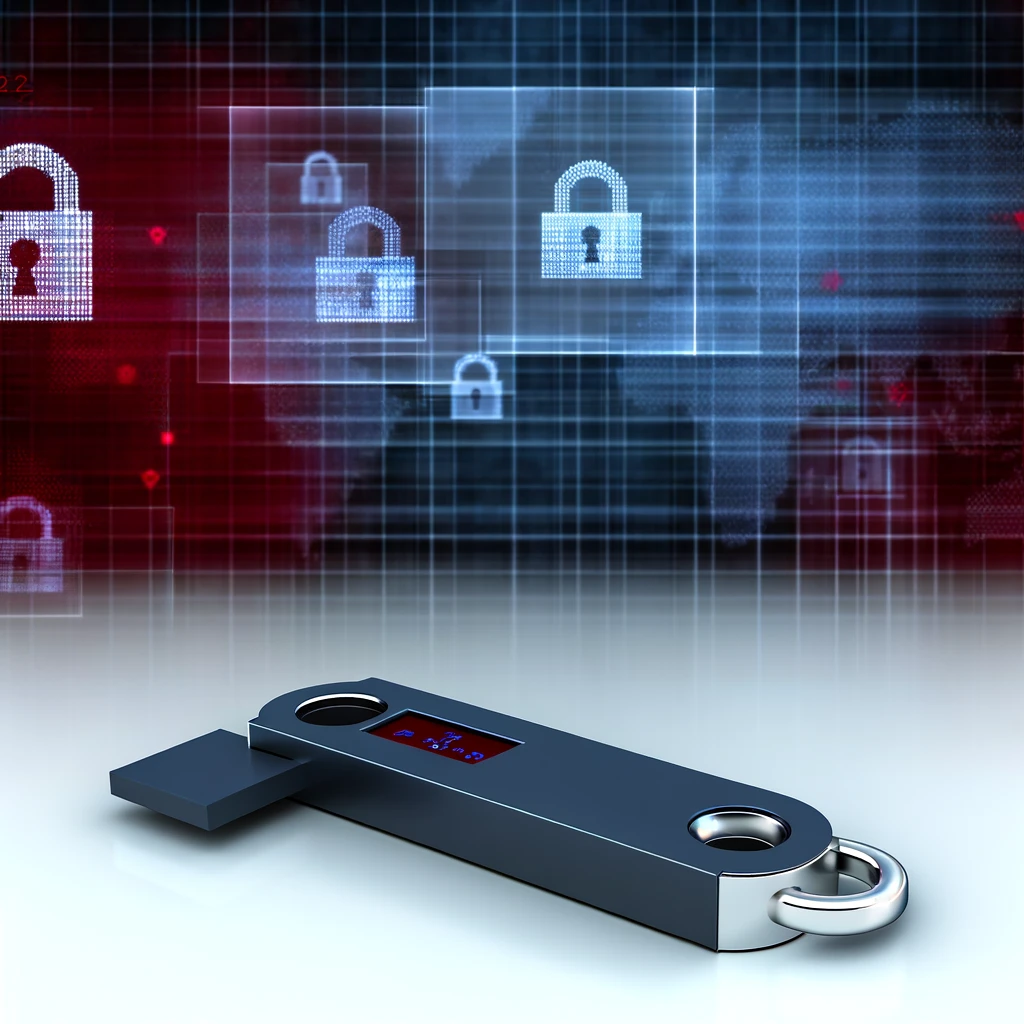In the world of cryptocurrencies, the allure of decentralization and financial sovereignty is often tempered by the reality of regulatory oversight and legal compliance. One key aspect that cryptocurrency enthusiasts must be aware of is how hardware or cold wallets can be seized or frozen by authorities. This article delves into the mechanisms, legal frameworks, and real-world examples to provide a comprehensive understanding of this process.
Understanding Hardware and Cold Wallets
What is a Hardware Wallet?
A hardware wallet is a physical device designed to securely store the private keys of cryptocurrencies offline. These devices are known for their enhanced security features, making them less susceptible to hacking compared to online wallets. Popular hardware wallets include:
- Ledger Nano S/X
- Trezor Model T/One
- KeepKey
What is a Cold Wallet?
A cold wallet, on the other hand, refers to any method of storing cryptocurrencies offline, away from internet access. This can include hardware wallets, paper wallets, and even physical coins embedded with private keys. Cold wallets are used to safeguard assets from cyber threats.
Legal Frameworks and Regulatory Authorities
The Legal Basis for Seizing Cryptocurrency
Cryptocurrencies, while decentralized, are not beyond the reach of the law. Several legal frameworks allow authorities to seize or freeze assets, including cryptocurrencies, under certain conditions:
- Anti-Money Laundering (AML) Laws: These laws require financial institutions to report suspicious activities. If cryptocurrencies are suspected to be involved in money laundering, authorities can intervene.
- Counter-Terrorism Financing (CTF) Regulations: Similar to AML, these regulations target the financing of terrorist activities.
- Criminal Proceedings: In cases of fraud, theft, or other criminal activities, cryptocurrencies can be seized as part of the legal process.
- Tax Evasion Investigations: Tax authorities can freeze assets if there is evidence of tax evasion.
Key Regulatory Bodies
Various regulatory bodies across the globe have the authority to seize or freeze cryptocurrency assets:
- Financial Crimes Enforcement Network (FinCEN) in the USA
- Europol in the European Union
- National Crime Agency (NCA) in the UK
- Australian Transaction Reports and Analysis Centre (AUSTRAC) in Australia
Mechanisms for Seizing or Freezing Hardware and Cold Wallets
Physical Seizure
The most straightforward method for authorities to seize a hardware or cold wallet is through physical confiscation. This can occur during:
- Search and Seizure Operations: Law enforcement agencies, armed with search warrants, can confiscate hardware wallets found in the possession of suspects.
- Customs Inspections: Hardware wallets can be seized during international travel if they are detected and linked to illegal activities.
Legal Orders and Compliance
Even if the hardware wallet is not physically seized, authorities can compel individuals or entities to surrender private keys through legal means:
- Court Orders: Judges can issue orders requiring individuals to hand over private keys or face legal penalties.
- Subpoenas: Regulatory bodies can issue subpoenas demanding access to private keys or transaction records.
- Cooperation Agreements: Authorities can work with wallet manufacturers to obtain information or assist in accessing funds.
Forensic Analysis and Cyber Investigations
Authorities often employ advanced forensic techniques to track and access cryptocurrency funds:
- Blockchain Analysis: Specialized software can trace transactions on the blockchain, linking them to individuals and leading to the identification of wallet addresses.
- Decrypting Devices: In some cases, authorities may attempt to decrypt hardware wallets, especially if they believe the wallet holds significant evidence.
Seizure or Freezing When Keys or Passwords Are Not Physical
In scenarios where private keys or passwords are not stored physically, such as when they are memorized or stored in digital formats, authorities have additional methods to gain access:
Digital Compliance and Pressure
Authorities may use various legal and psychological strategies to compel individuals to reveal their non-physical keys or passwords:
- Legal Compulsion: Through court orders or subpoenas, authorities can legally require individuals to disclose passwords or keys. Non-compliance can result in penalties, including fines or imprisonment.
- Interrogation Techniques: Authorities can use interrogation techniques to persuade or pressure individuals into revealing memorized keys or passwords.
- Social Engineering: In some cases, authorities may employ social engineering tactics to trick or convince individuals to disclose their private information.
Digital Evidence Collection
Authorities can also attempt to gather digital evidence that might lead to the discovery of non-physical keys or passwords:
- Seizing Digital Devices: Computers, smartphones, and other digital devices can be confiscated and examined for clues or direct access to stored passwords or keys.
- Forensic Analysis: Digital forensic experts can analyze devices for hidden or encrypted files that might contain the necessary information.
- Cloud Storage Access: If keys or passwords are stored in cloud services, authorities can obtain access through service providers using legal warrants.
Real-World Examples
Silk Road Case
The Silk Road case is a notable example where cryptocurrencies were seized by authorities. The U.S. government seized over 144,000 Bitcoins from Ross Ulbricht, the founder of Silk Road, an online black market. The Bitcoins were stored in a variety of wallets, including hardware wallets, and were confiscated through a combination of physical and digital forensics.
OneCoin Scam
In the OneCoin scam, authorities in several countries collaborated to seize assets, including cryptocurrencies stored in cold wallets. This multi-billion dollar Ponzi scheme led to the arrest of key figures and the confiscation of substantial cryptocurrency holdings.
Challenges and Considerations
Privacy and Legal Rights
Seizing cryptocurrencies raises significant privacy and legal concerns:
- Due Process: Authorities must follow legal protocols to ensure that the seizure is lawful and justified.
- Privacy Rights: Individuals have the right to privacy, and undue access to personal financial information can lead to legal challenges.
Technological Barriers
Despite the legal frameworks, there are significant technological barriers to seizing cryptocurrencies:
- Encryption: Hardware wallets use advanced encryption methods, making it difficult to access funds without the private keys.
- Passphrases and Seed Phrases: Many hardware wallets require additional security measures, such as passphrases or seed phrases, which are often stored separately by the owner.
International Jurisdiction
Cryptocurrencies often transcend national borders, complicating the process of legal seizure:
- Cross-Border Cooperation: Seizing cryptocurrencies often requires international cooperation, which can be slow and bureaucratic.
- Jurisdictional Conflicts: Different countries have varying regulations and legal frameworks, creating conflicts and inconsistencies.
While hardware and cold wallets provide a high level of security for cryptocurrency holders, they are not entirely immune to seizure or freezing by authorities. Understanding the legal frameworks, regulatory bodies, and mechanisms involved is crucial for anyone involved in the cryptocurrency space. As the legal landscape continues to evolve, staying informed and compliant with local and international laws is essential to safeguard one’s assets.
Key Takeaways
- Hardware Wallets: Physical devices storing cryptocurrencies offline.
- Cold Wallets: Any offline method of storing cryptocurrencies.
- Legal Frameworks: AML, CTF, criminal proceedings, and tax investigations.
- Regulatory Bodies: FinCEN, Europol, NCA, AUSTRAC.
- Seizure Mechanisms: Physical confiscation, legal orders, forensic analysis.
- Non-Physical Keys: Digital compliance, pressure, and evidence collection.
- Challenges: Privacy rights, encryption, international jurisdiction.
Staying informed about the potential for seizure and the methods used by authorities can help cryptocurrency holders better protect their assets and navigate the complex regulatory environment.



